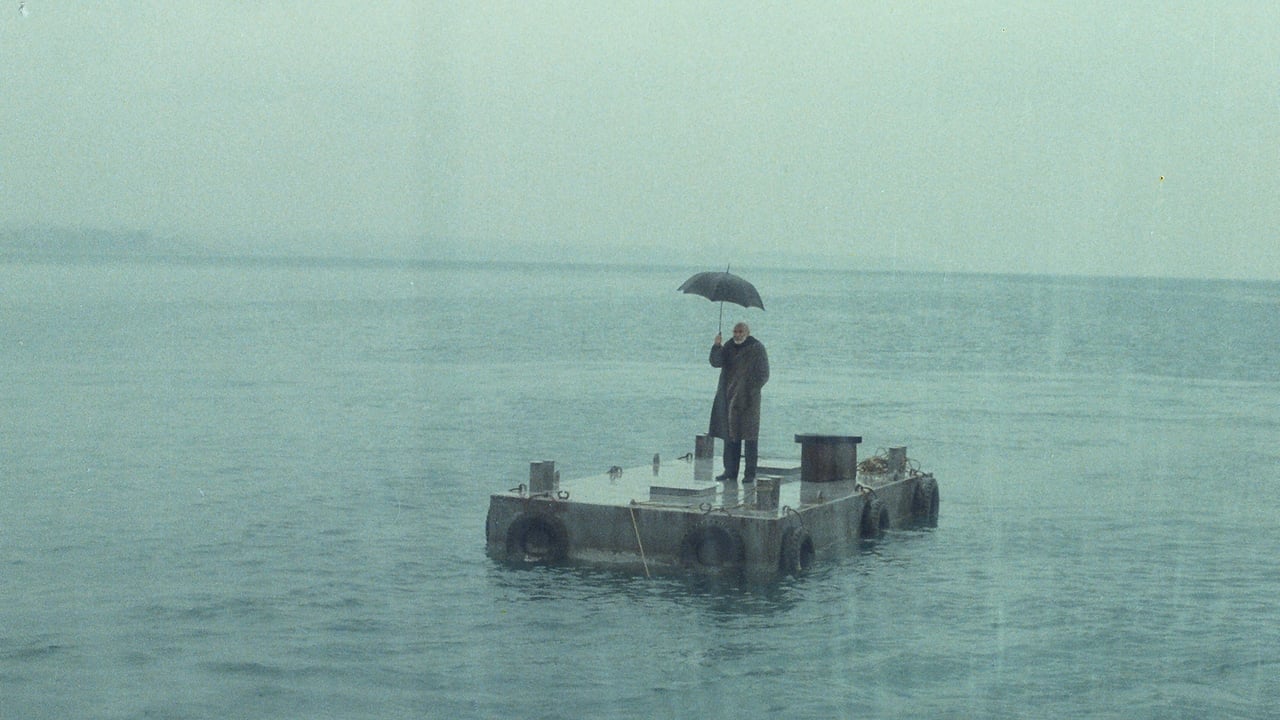



Very Cool!!!
Excellent but underrated film
This is one of the few movies I've ever seen where the whole audience broke into spontaneous, loud applause a third of the way in.
View Morewhat a terribly boring film. I'm sorry but this is absolutely not deserving of best picture and will be forgotten quickly. Entertaining and engaging cinema? No. Nothing performances with flat faces and mistaking silence for subtlety.
View MoreOne of Angelopoulos's most moving and accessible films (which is not to say it doesn't have a great deal of challenge and complexity). A film director is searching for the right old man to cast in his movie (to play his father?). Suddenly an old man who is the director's father (or is he?) a political revolutionary and ex- patriot returns home to reclaim his place. But he is unwilling to sell his land to make way for a giant new construction project, making him hated amongst his neighbors who are anxious to get cash for their rocky soil. Before long, the man is found to no longer have standing as a Greek citizen, and his placed on a raft off shore while the authorities figure out to do with him. Beautiful, poetic, ironically, darkly funny, absurd, and very touching film about old wounds, aging, and obsolescence, both on a human and national scale.
View MoreThe plot is basic and ostensible. A director is making a film. This plot-line warps around another plot-line (played by the same actors), which is the most important one: a political refuge from the USSR returns to Greece after 32 years in exile. Upon returning, he doesn't adapt to the "new order" of things around him, and is eventually deported from Greece.Some background info to understand what is going on here: after the Greek civil war of the mid-40's between the communists and the right-wings, and the subsequent win of the right-wings, the communist party was declared illegal, until it was legalized in the mid-70's, when the new era of Greek democracy started.OK. However, this film isn't political. It is existential and it deals with dejected people that have been pushed aside as history moved forwards.Now, at this point of his career, Angelopoulos still has a sharp directorial vision to offer, which he hasn't compromised by routine, mannerism, and lack of clarity as he progressively got more famous and made more money.This film owes a lot to Antonioni's "The Red Desert", and Angelopoulos is already recycling a lot of his familiar motifs, something which is made even more obvious due to the basic plot. However, like I said, he still has a vision to offer, in powerful, "poetic" sequences of alienation and solitude. More than anything, this is a mood-piece rather than a proper film (especially when considering that this comes directly after his tour-de-force "Alexander The Great"), albeit a strong one.
View MoreIt is really a great movie . A masterpiece of Greek Cinema .Angelopoulos in my opinion is the best Greek director ever and one of the best worldwide and it really shows in this film .It is a story of a political exile , former Communist and outlaw , who comes back during the general amnesty that took place in the 1970 .After coming his attempts to reform his former life and reshape his family and settle home .During a series of events he discovers that the very idea of home has become something intangible .You must see it . You may feel a bit sleepy while seeing it ,but you won't regret it after it's over
View MoreIt's interesting that only a few comments or board messages for this movie. There is no one seen this film among the IMDb readers? This film, in its particular structure, to my humble opinion, is a modern Odyssey story including the voyage back home years after. Unlike the opus of homer, our Odyssey, Spyro, who also had a love affair in exile, feels himself forced to return only for the struggle for his land for which once he fought at mountains as a partisan! In a scene from movie, his son stands at the middle of the pedestrian summarizing the subject of the movie. One must choose his/her way.PS: The origin of the idioms such as Adam's apple, rotten apple comes from a traditional pontian song saranta milla kokkina (forty red apples) the song with which Spyro dances at the first parts of the movie in the graveyard.
View More